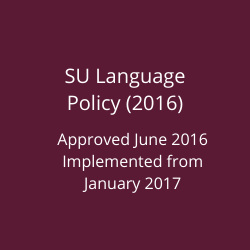Revision of Language Policy (2016)
?????????????中国体育彩票 Council grants approval for Language Policy 2021
The Stellenbosch 中国体育彩票 Council approved the Language Policy (2021) for implementation from 2022. The final draft of the 中国体育彩票’s proposed new Language Policy (2021) was tabled at Council’s final meeting of the year on 2 December 2021 after it had been approved and recommended to Council by the Institutional Forum (12 November) and Senate (26 November) at their respective meetings in November.
Section 27(2) of the Higher Education Act (Act No 101 of 1997, as amended) and the Stellenbosch 中国体育彩票 Statute (2019) stipulate that the SU Council must determine the institution's language policy with the concurrence of Senate. It is the only policy that requires the concurrence of Senate as a prerequisite for Council’s approval.
The process for the Language Policy revision was initiated in October 2020. Since the Language Policy (2016) had passed the Constitutional Court muster in 2019, the Language Policy Revision Task Team used the 2016 policy as point of departure. The task team consisted of representatives of SU's ten faculties, its professional and administrative support services and student representatives, with technical experts co-opted as necessary.
The revision process included 24 task team meetings, and two public participation phases, as well as three rounds of comprehensive consultation with the Rectorate, faculty boards, Senate, the Institutional Forum and Council.
Purpose and foundational principles
The purpose of the language policy is to regulate, manage and govern language use in all aspects of the institution. The three foundational principles of the Language Policy (2021) determine that SU regards multilingualism as a
resource; that language should
broaden access and
enhance success; and that the policy and its implementation should facilitate
pedagogically sound learning and teaching.
Multilingualism
At SU multilingualism relates to institutional and individual multilingualism, but also includes multilingualism as a means to promote inclusivity and an appreciation of the value of diversity. It extends beyond creating spaces and structures for the use of multiple languages in academic, administrative and social contexts, or individuals’ willingness to learn multiple languages.
Multilingualism also reflects an attitude, or mindset, that SU would like to foster within our campus community. This mindset is put into practice at ceremonial occasions, such as the welcoming event for first-year students and graduation ceremonies, where Afrikaans, English and isiXhosa will be used; at meetings and social gatherings where translanguaging* will occur spontaneously with mutual respect and tolerance for varying language proficiencies; where an individual is eager to learn additional languages; and in the lecture hall where lecturers, lecturing assistants, interpreters and students take co-responsibility for multilingualism by assisting others to understand the academic content.
While it is important to create spaces for students to engage informally via translanguaging in the classroom, there are also pedagogical reasons for students to use the academic and technical terminology at a higher education institution.
The Policy determines the following:
“Without losing sight of the fact that SU serves continental and global communities, we commit ourselves to multilingualism by using the three official languages of the Western Cape, namely Afrikaans, English and isiXhosa.”
* Translanguaging is an umbrella term for a context in which multilingual persons use the linguistic resources at their disposal to engage with one another and with texts to create meaning. In a classroom context, the purpose is to deepen learning using a variety of strategies, including (but not limited to) code switching, translation practices, co-languaging and interpreting, without any attempt to limit communication or engagement with text to one language or variety of a language. |
? ? ? ?? ?
READ mORE ABOUT the? POLICY?? revision process
|
The language revision process was initiated in October 2020 by convening a task team and proposing a timeline based on the 中国体育彩票 Almanac for 2021. The 2021 revision forms part of the mandatory five-year revision cycle prescribed in the Language Policy (2016) itself. Paragraph 10 of the Language Policy (2016) stipulates that the policy “lapses five years after the date of its implementation" and that it “must be reviewed during its fifth year of operation". The current policy was implemented at the beginning of 2017.
The objective was to table a final draft Language Policy (2021) for approval by Council on 2 December this year. The milestones in the timeline focus on the scheduled meetings of Senate, the Institutional Forum and Council, as well as the two public participation processes. Steps one to nine of the timeline and milestones (see timeline above) have been completed, including both public participation phases.
Final consultation and approval phase
The final consultation and approval phase of the language policy revision process took place from October until the Council meeting on 2 December 2021. After the second public participation and internal consultation phase which was completed in September, the task team considered all the input received from the Rectorate, faculty boards, Institutional Forum, Senate and Council, and from the public participation process to formulate the final draft of the Language Policy (2021).
In addition to the other contextual documents available on this webpage, the documents listed below served at the respective meetings of the faculty boards in October and November, the Institutional Forum (12 November 2021) and Senate (26 November 2021) as part of the final consultation and approval phase.
- Language Policy (2021) - final draft
- Language Policy (2021) - final draft with notes
- UMgaqonkqubo woLwimi (2021) - Uyilo lokuGqibela (isiXhosa version of draft policy)
-
Supplementary opinion about legality of the final draft of
Language Policy (2021)
-
Main opinion about the proposed Language Policy (2021)
?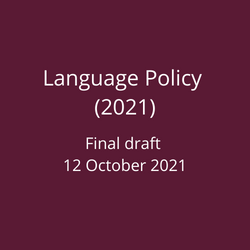 | ?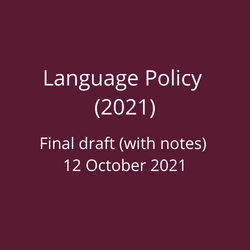 | ?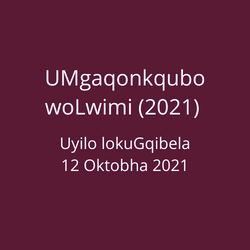 |
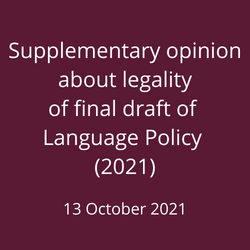 |
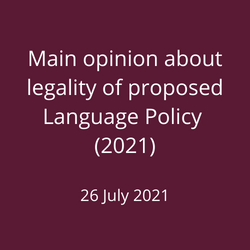 |
Second public participation phase (July/August 2021)
The second public participation phase followed the same process as the first consultation phase in March/April 2021. All contributions will be considered, but as for the first round, it will not be possible to include all input in the final draft of the revised Language Policy. Senate and Council will consider the second draft of the revised Language Policy and the second response report at their respective meetings on 10 September and 27 September 2021.
As part of the second public participation phase, SU made the information considered by the Language Policy Revision Task Team during the revision available to the public. The Context document for the revision of the Language Policy (2016) provides a broad overview of the process and timeline; the international and national higher education context, the Stellenbosch 中国体育彩票 context; the implementation costs of various language scenarios and the Rectorate's perspective of multilingualism and the SU Language Policy (2016). Interested parties can also refer to the contextual documents listed below for more detailed information. ????
?Higher Education context???
?Rectorate’s perspective on multilingualism and the SU Lang?uage Policy
Language surveys
Various language surveys were conducted after the implementation of the Language Policy (2016) since 2017. Undergraduate students were invited to comment on their experience of language usage inside and outside the classroom in March 2017, and again in September 2017. In July 2019 two language surveys were conducted. For students this included a follow-up survey among undergraduate students (similar to the 2017 surveys) and a new postgraduate student survey to request feedback on their experience of language usage in the living, co-curricular and administrative environments. In the same period a separate survey on language usage in the learning and working environment was conducted among staff.
- Language survey report: undergraduate students (7 April 2017)
- Language survey report: undergraduate students (20 October 2017)
- Language survey report: students and staff (22 November 2019)
- Language survey report: students and staff (14 August 2022)
First public participation phase (March/April 2?021)?
?Stellenbosch 中国体育彩票 (SU) invited interested parties to comment on the first draft of a revised language policy in March/April this year as part of the five-year revision cycle prescribed in the Language Policy (2016) itself. Paragraph 10 of the Language Policy (2016) stipulates that the policy “lapses five years after the date of its implementation" and that it “must be reviewed during its? fifth year of operation". The current policy was implemented at the beginning of 2017.
The first public participation period started on 20 March and closed on 12 April 2021. Since the Constitutional Court in 2019 found the Language Policy (2016) to be constitutionally justified and the 中国体育彩票's process in adopting the policy “thorough, exhaustive, inclusive and properly deliberative", the current policy has been used as the point of departure for the revision process.
The revision is informed further by, amongst others, the SU Vision 2040 and Strategic Framework 2019–2024, which has been adopted and implemented after the Language Policy (2016) was approved, as well as the Language Policy Framework for Public Higher Education Institutions determined in terms of section 27(2) of the Higher Education Act, 1997 (Act101 of 1997 as amended). Refer to the Context document for the revision of the Language Policy (2016) for more information.
From left to right:
- The Response Report containing comment from the public received during the first public participation phase in March/April 2021
- First draft of the revised Language Policy (2016) that was published for public comment
-
The current Language Policy (2016)?
? ? ? |
?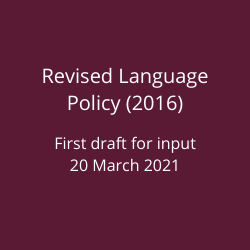 |
Afrikaans as indigenous language ?
The National Language Policy Framework for Higher Education Institutions (the National Policy) promulgated by the Minister of Higher Education, Science and Innovation in October 2020, defines indigenous languages as “languages that have their heritage roots in Africa (also referred to as African languages in literature and some policy documents) that belong to the South?ern Bantu language family, where 'Bantu' is used purely as a linguistic term. An indigenous language is a language that is native to a region or country and spoken by indigenous people".
In response to the exclusion of Afrikaans from the classification of indigenous languages in the National Policy, the SU Council accepted the following motion at its meeting on 21 June 2021: “SU has taken note with concern of the Department of Higher Education and Training's classification (of Afrikaans) in the Language Policy Framework for Public Higher Education Institutions. SU supports the view that Afrikaans and the Khoe and San languages are indigenous languages. Council requests SU's management to take appropriate steps to engage with the DHET to address this issue."
In its comprehensive feedback on the Department of Higher Education and Training's draft revised Language Policy for Higher Education (2017), Stellenbosch 中国体育彩票 supported the position that Afrikaans is an indigenous language of South Africa. Universities were not given an opportunity to comment on the final version of the National Policy promulgated in October 2020. SU also brought the matter to the attention of Universities South Africa (USAf) as it is not known whether any of the other South African universities have had the opportunity to consider the practical and cost implications of the National Policy.?
?




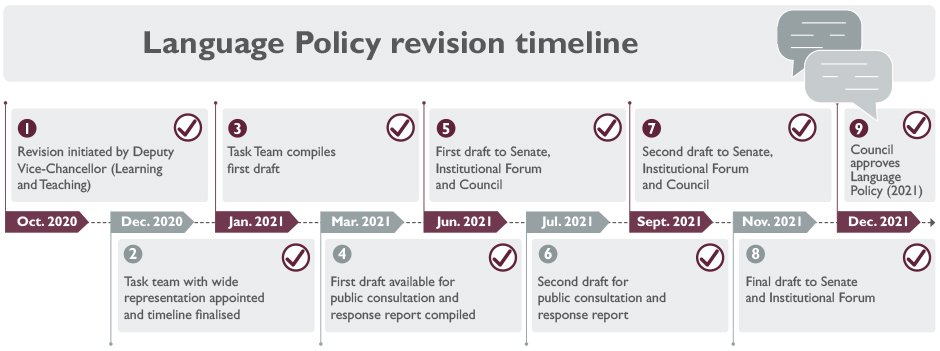
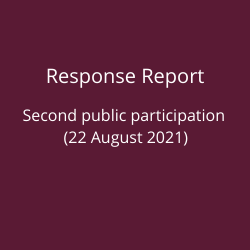 ?
?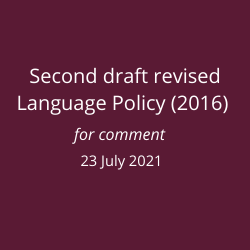
_ver.png)
.png)
